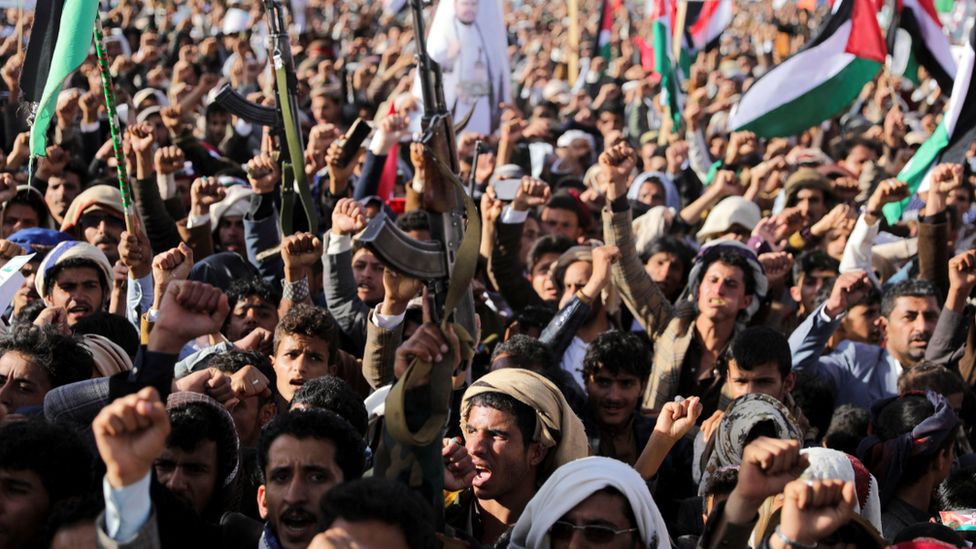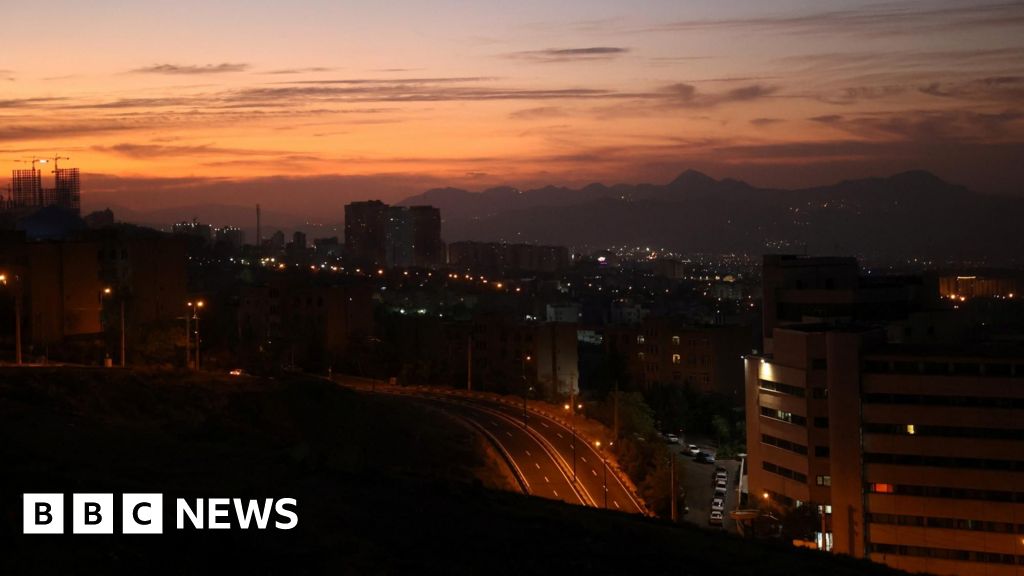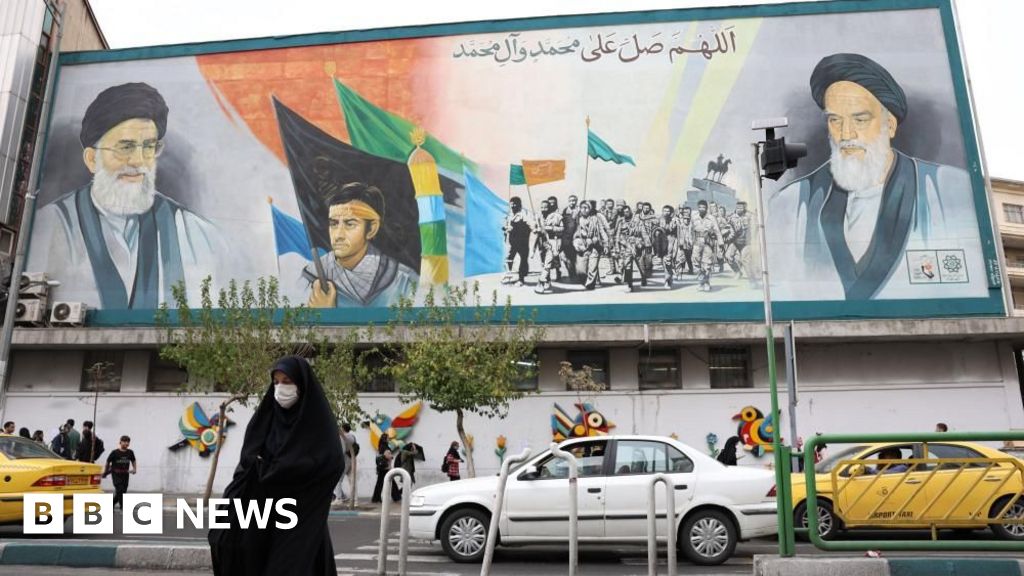ARTICLE AD BOX
 Image source, Reuters
Image source, Reuters
Huge crowds of people turned out to protest against the US-UK airstrikes in the Yemeni capital Sanaa
US President Joe Biden says there will be further retaliation against the Houthis should the group continue with its "outrageous behaviour".
The US and UK launched dozens of airstrikes on Friday - targeting nearly 30 Houthi positions in response to recent attacks on ships in the Red Sea.
Five people were killed, the group reported - vowing to retaliate.
Mr Biden said the strikes were a success and that he thought the Houthis were a "terrorist" group.
Some 73 missiles were launched at Yemen during the strike, the Houthis reported. They said the attack meant UK and US interests were now legitimate targets.
"They [US and UK] committed an idiocy with this treacherous aggression," said Houthi spokesman Mohammed Abdulsalam.
"We're not interested in a war with Yemen," said White House national security spokesperson John Kirby.
However, he added that Mr Biden "won't hesitate to take further action to protect our troops and our facilities and international commerce".
Friday's attacks had the backing of US-UK allies including Canada and Australia.
According to the Pentagon, the group may currently not have the ability to mount a significant military response.
"We did see one anti-ship ballistic missile that was fired today that did not hit any ships of any kind," said Director of Operations Lt Gen Douglas A Sims ll.
Earlier, there were reports from a UK maritime security group that a missile was fired at a vessel off the southern coast of Yemen but no damage or injury was reported.
The British maritime security firm Ambrey said it was a tanker carrying Russian oil that was wrongly targeted by the Houthis, who thought the vessel had a UK connection.
But the US has made it clear they believe Iran - a Houthi ally - is pulling the strings and providing the group with the resources it needs to carry out the Red Sea attacks.
Tehran, for its part, has condemned the strikes on Yemen as a violation of international laws.
UK Prime Minister Rishi Sunak denied Friday's strikes were excessive - a claim levelled by Tukey, who accused the two countries of trying to turn the Red Sea into a "sea of blood".
Both Mr Sunak and Mr Biden faced criticism that their legislatures were not fully consulted before the attacks were launched.
With tensions high over the possibility that the strikes could further destabilise the Middle East, both the UK and US are keen to stress that the airstrikes were simply to protect shipping routes and nothing to do with the Israel-Gaza conflict.
The countries have backed Israel following the 7 October attacks by Hamas in which about 1,300 died and some 240 people were taken hostage.
The Houthis support Hamas, which is the focus of a military campaign by Israel in Gaza that has seen 23,350 people die so far, according to the Hamas-run health ministry.
In response to the outbreak of war, the Houthis began attacking ships they said were destined for Israel or with Israeli links, describing them as a "legitimate target".
Some 27 ships have been targeted in the Red Sea to date, according to the Pentagon, but many commercial vessels that have been targeted appear to have no such connection.
The threat posed by the Houthis has become so great that major shipping companies have ceased sailing in the region and insurance costs have risen 10-fold since early December.
In the Yemeni capital Sanaa - which is under Houthi control - there were mass demonstrations against the US-UK strikes.
"This rally is first to condemn this aggression against the Republic of Yemen last night," one man told the Reuters news agency.
"It is also a message to Britain and the United States of America in particular, that they will pay a heavy price for this aggression."
There have been regular mass rallies in Yemen in support of the Palestinians and Gaza since October but this Friday's were exceptionally large.
The Houthis are an armed group from a sub-sect of Yemen's Shia Muslim minority, the Zaidis. They declare themselves to be part of the Iranian-led "axis of resistance" - along with the Hamas and Hezbollah groups - against Israel, the US and the wider West.
They control a large swathe of north-western Yemen - including the country's largest city, Sana'a - and have effectively become the de-facto government there after seizing control in 2014.
What might happen next?
There is a whole spectrum of possible scenarios which could now develop in the Red Sea, ranging from the optimistic to the catastrophic.
Best case: tempers cool, the Houthis have second thoughts and refrain from attacking any more shipping. This is unlikely. Today's mass demo shows they have massive popular support at home and they have already issued defiant warnings of retaliation.
Worst case: the Houthis continue targeting shipping and also make good on their promise to attack US/UK assets and manage to score a direct missile hit on a warship.
This is a militia that has spent years resisting devastating airstrikes by the Saudi Air Force and is now, thanks in part to help from Iran, more firmly in control of much of Yemen than ever. The Houthis think they are invincible. They certainly have patience and an abundance of weaponry, much of it hidden in mountain tunnels.
There is now a dangerous inflection point for the US-led coalition in the Red Sea whereby it risks getting sucked into a costly and unwinnable war, just as the Saudis did.

 9 months ago
15
9 months ago
15








 English (US)
English (US)